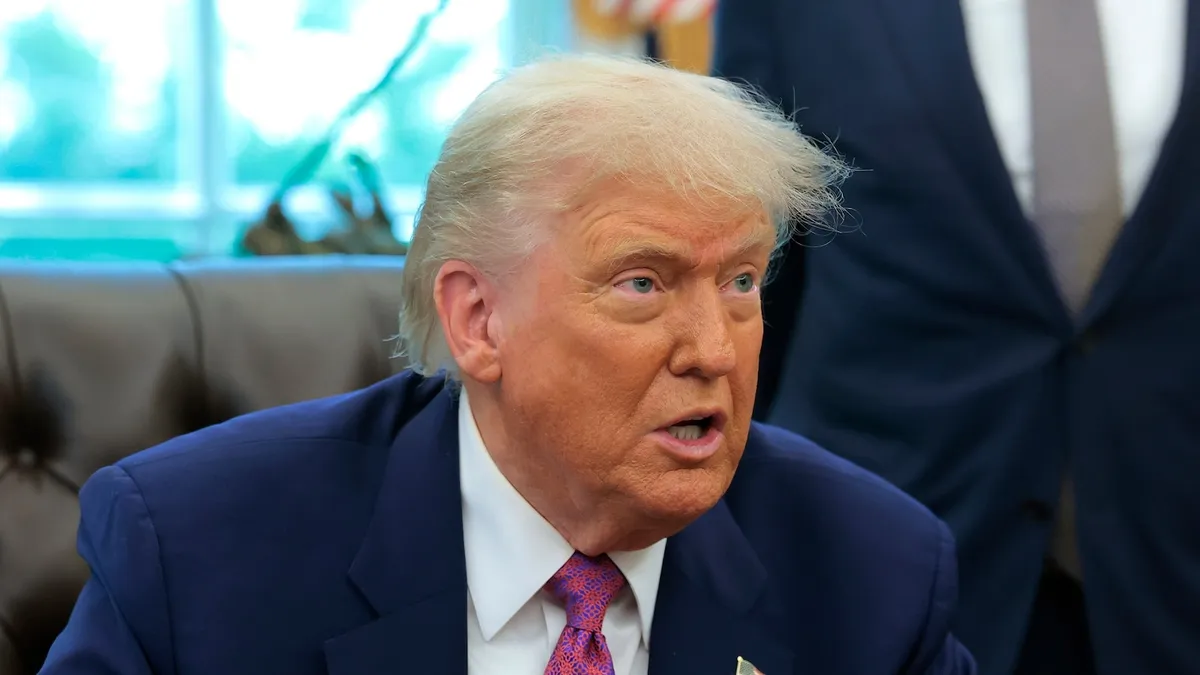
In a significant escalation of tensions surrounding immigration enforcement, President Donald Trump and his administration officials indicated that the military's involvement in handling protests against his immigration policies may extend beyond Los Angeles. Trump warned that the deployment of military forces could be just the beginning, stating that any future protests might be met with "equal or greater force."
During a press briefing in the Oval Office on Tuesday, Trump reiterated his administration's commitment to strictly enforce its deportation policy and emphasized that violent protests against ICE (Immigration and Customs Enforcement) officers would not be tolerated. This warning came in light of the deployment of 4,000 National Guardsmen and 700 Marines to Los Angeles, aimed at quelling ongoing demonstrations that have sporadically clashed with law enforcement.
Trump stated, "You know, if we didn't attack this one very strongly, you'd have them all over the country," highlighting his administration's stance to deter protests nationwide. The president's decision to mobilize military forces was taken despite objections from California Governor Gavin Newsom, who criticized the move as an infringement on state sovereignty.
Defense Secretary Pete Hegseth, during a congressional hearing, echoed the president's sentiments, asserting that ICE has the right to conduct operations safely across the United States. He stated, “We have deployed National Guard and the Marines to protect them in the execution of their duties,” emphasizing the necessity of enforcing immigration laws in the country.
In response to the protests, Trump suggested he might consider invoking the Insurrection Act, which allows the president to deploy military forces within the United States to suppress rebellion or civil disorder. However, under the existing authorization, the National Guard and Marines are prohibited from performing law enforcement duties due to the Posse Comitatus Act of 1878.
Trump characterized some areas of Los Angeles as experiencing "insurrection" and claimed, without evidence, that many protesters were paid insurrectionists. He condemned acts of vandalism and hostility directed at the National Guard during the protests.
Despite Trump's assertions of widespread violence, reports from ABC News indicated that the situation was not as severe as described. Observations showed police employing skirmish lines and non-lethal measures to manage the crowd, with no significant violent incidents occurring compared to earlier protests over the weekend. The disturbances were largely confined to a small section of downtown Los Angeles, spanning about ten blocks.
To date, the National Guard's role in managing the protests appears to have been limited, with troops primarily positioned outside federal buildings while local law enforcement led the efforts to clear streets and engage with demonstrators. Specific actions taken by the National Guard on Monday remain undisclosed.
Support for Trump's military response has emerged from several congressional Republicans, including House Speaker Mike Johnson and Senate Majority Leader John Thune, who argued that local officials failed to manage the situation effectively. Thune remarked, “Clearly, the local officials there, for whatever reason, didn't seem up to the task of getting the job done there.”
Conversely, Senate Minority Leader Chuck Schumer criticized the president's decision as provocative and dangerous, claiming it undermines the foundational principles of democracy. “It really threatens the bedrock of our democracy,” Schumer stated.
Trump confirmed that the National Guard would remain in the Los Angeles area until he deems it safe to withdraw, opting not to specify a timeline for their departure. "It's easy. Look, it's common sense. … When there's no danger, they'll leave," he concluded.
This developing situation highlights the ongoing national debate over immigration policies, state rights, and the federal government's use of military force in domestic matters.